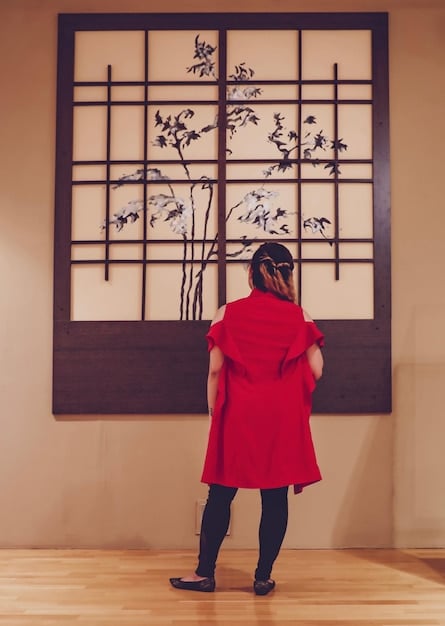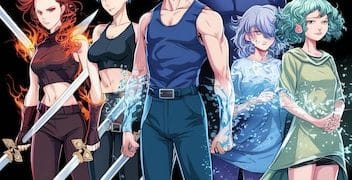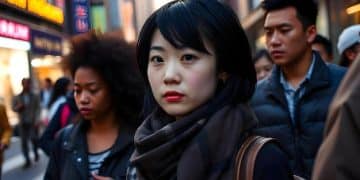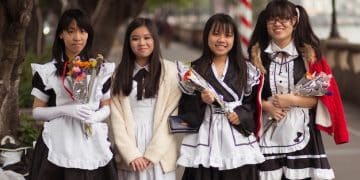J-Drama Remakes: A Critical Look at Their Worth

J-Drama remakes spark debate among viewers: do they honor the original series or fall short? Exploring the intricacies of adapting beloved stories, this article assesses the value and impact of J-Drama remakes like Boys Over Flowers, examining factors that influence their success.
J-Drama remakes have become increasingly common, leaving fans to wonder if these new versions can capture the magic of the originals or if they are destined to pale in comparison.
The Allure of J-Drama Remakes
J-Drama remakes offer a nostalgic trip for fans and a chance for new audiences to discover classic stories. The potential for refreshing familiar narratives with modern sensibilities is significant.
Nostalgia and New Audiences
Remakes tap into the fond memories of viewers who enjoyed the original series. They also serve as an entry point for younger generations who may not be familiar with older J-Dramas.
Modern Adaptations
Remakes can update storylines and characters to reflect contemporary social issues and values, making the content more relatable to today’s audiences.
- Updating cultural references to be more relevant.
- Addressing social issues not previously highlighted.
- Improving production quality with modern technology.
However, the allure of remakes is a double-edged sword. The audience comes with pre-defined expectations which may or may not be met.
Potential Pitfalls of Remaking a J-Drama
Remaking a J-Drama comes with several risks, including alienating original fans and failing to capture the essence of the source material. Adaptation choices can significantly impact the success or failure of a remake.

Loss of Original Charm
Changing key elements of the story or characters can strip away what made the original J-Drama special. Fans may feel that the remake betrays the spirit of the source material.
Unnecessary Changes
Some remakes make changes that are not improvements, leaving viewers wondering why the adaptation was necessary in the first place.
- Poor casting choices that don’t match the characters’ personalities.
- Altering the plot in ways that weaken the story’s impact.
- Over-reliance on modern trends that feel forced or out of place.
These risks often lead to debate whether a remake does justice to the original.
Case Study: Boys Over Flowers Remakes
Boys Over Flowers, known as *Hana Yori Dango* in Japan, is a popular manga series that has been adapted into numerous J-Dramas and international remakes. This provides a rich case study for evaluating the success of J-Drama remakes.
Original Japanese Adaptation (Hana Yori Dango)
The original Japanese adaptation of *Hana Yori Dango* is highly regarded for its faithful portrayal of the manga and its memorable cast. It set a high standard for future adaptations.
Korean Remake (Boys Over Flowers)
The Korean remake of *Boys Over Flowers* achieved immense popularity, particularly in Asia. It introduced the story to a broader audience and solidified the story’s appeal.
Taiwanese Remake (Meteor Garden)
The Taiwanese remake, *Meteor Garden*, was one of the earliest adaptations of *Hana Yori Dango*. It resonated well with local audiences and helped popularize the story in Taiwan.
Ultimately, the success of the Boys Over Flowers remakes can be judged by each adaptation’s ability to capture the elements that made the story so popular.
Factors Affecting the Success of J-Drama Remakes
Several factors influence whether a J-Drama remake is successful. These include casting choices, writing quality, production values, and the ability to balance faithfulness to the original with necessary updates.

Casting and Character Portrayal
Casting actors who embody the essence of the original characters is crucial. The actors’ performances must resonate with viewers and capture the characters’ personalities and motivations.
Writing and Story Adaptation
The writing quality is vital for creating a compelling narrative. Remakes should adapt the original story in a way that feels fresh and relevant while honoring the source material’s themes and messages.
Production Value and Visual Appeal
High production values, including cinematography, set design, and costumes, contribute to the overall viewing experience. Visual appeal can enhance the audience’s immersion in the story.
Striking the right balance between nostalgia and innovation can result in a remake success.
Analyzing Audience Reception
Audience reception is a key indicator of a J-Drama remake’s success. Reviews, ratings, and social media buzz provide valuable insights into how viewers perceive the adaptation.
Critical Reviews and Ratings
Professional critics’ reviews offer an objective assessment of the remake’s quality. Ratings provide a quantitative measure of audience satisfaction.
Social Media Buzz and Fan Reactions
Social media platforms are a valuable source of real-time feedback from viewers. Fan reactions can reveal whether the remake is resonating with the target audience.
- Monitoring hashtags and online forums for discussions and opinions.
- Analyzing sentiment analysis to determine overall audience perception.
- Engaging with fans to understand their perspectives and concerns.
Ultimately, the success or failure of a remake often hinges on the quality of audience reactions.
Conclusion: Are J-Drama Remakes Worth Watching?
Whether J-Drama remakes are worth watching depends on individual preferences and expectations. While some remakes may disappoint, others can offer a fresh and enjoyable take on a beloved story. It’s essential to approach each remake with an open mind and evaluate it on its own merits.
| Key Aspect | Brief Description |
|---|---|
| 🌟 Original Charm | Maintaining the unique elements of the original series is essential. |
| 🎭 Casting Choices | The actors must embody the essence of their characters. |
| 🎬 Production Values | High-quality cinematography, sets, and costumes improve the viewing experience. |
| 🔄 Adaptation | Balancing faithfulness to the original with necessary updates is a challenge. |
Frequently Asked Questions
▼
A successful J-Drama remake often balances faithfulness to the original source material with modern adaptations. Good casting, strong writing, and high production values are also crucial.
▼
Not necessarily. Some remakes can be just as good as, or even better than, the originals, depending on how well they are executed and how effectively they resonate with audiences.
▼
Cultural differences can significantly impact how a J-Drama remake is received. What works in one culture may not work in another, so adaptations must be carefully considered.
▼
Examples include various adaptations of “Boys Over Flowers” (*Hana Yori Dango*), which have been remade in multiple countries, each with its unique interpretation and cultural flair.
▼
Remakes offer a way to revive beloved stories for new generations and audiences. They also provide an opportunity to update narratives to reflect modern values and address contemporary issues.
Conclusion
Ultimately, the decision of whether to watch a J-Drama remake rests on individual preference. By considering the factors discussed and comparing various adaptations, viewers can make informed choices and discover hidden gems among J-Drama remakes.





